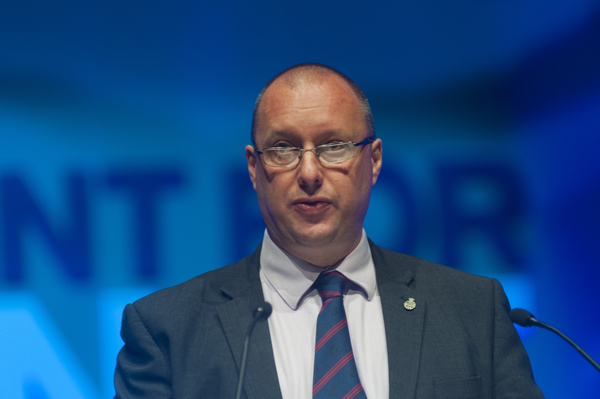PFEW General Secretary: “Why we asked for a 1% pay rise”
THE General Secretary of the Police Federation of England and Wales has said he “appreciates” why some officers might feel the organisation should have asked the Government for more than a one per cent 2015 pay rise.
In a message to members, Andy Fittes (pictured) said the organisation has “a responsibility to be realistic about what may be achieved” which has to be balanced against a responsibility to get police officers “the best possible deal.”
A submission to the Police Remuneration Review Body was sent in on January 9.
Mr Fittes told members: “Our submission [to the Police Pay Review Body] takes a long-term approach. This is not just about the here and now, but about ensuring we are recognised as a credible organisation supplying strong evidence-based submissions.
“To that end, this submission is about planning for future pay uplifts as well as just for 2015/16. We have therefore asked for an uplift of the maximum of 1% for all, including officers who receive an increment to basic pay, existing regional allowances and all allowances that are normally included in uplifts, such as dog handlers’ allowance.
“Not only does this take account of our recognition of the public sector austerity measures set by Government, but it addresses our primary concern is that there should be no further divisive pay changes.
“Officers have had to endure much turbulence to their pay and allowances in recent years as a result of the Winsor review and we are asking that there be no further piecemeal change to pay and conditions without proper long-term evidence of its impact.”
In their joint submission to the Police Pay Review Body, the Police Federation of England and Wales and the Superintendents’ Association have asked for an “uplift of 1% for all”.
However they have also asked that more “appropriate adjustments” are made in future years “to ensure officers are not left behind others when the UK economy is more buoyant.”
With the introduction of a Police Remuneration Review Body issues over police officer pay and remuneration in England and Wales will no longer be negotiated.
Instead the Review Body will consider evidence submitted by interested parties – ACPO, police and crime commissioners and staff associations – and then advise the Home Secretary, who will make all final decisions on pay. It will come later this year.
Mr Fittes added: “We appreciate that there may be some officers who feel we should have asked for more, but we have a responsibility to be realistic about what may be achieved.
“We have a responsibility to get for them the best possible deal, taking into account the current economic climate and the requirements set out in the remit letter to the PRRB.”

